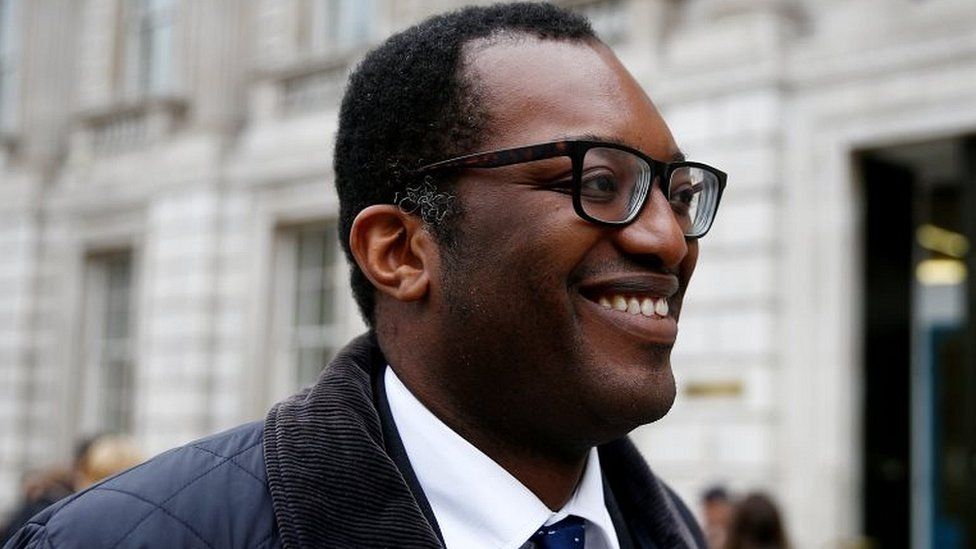Business Secretary Kwasi Kwarteng wants to restore confidence in business after high profile failures like Carillion.

image copyrightReuters
Proposals to reduce the dominance of the “Big Four” accountancy firms and scrap the industry regulator have been unveiled by the government.
The aim is to improve regulatory standards after high profile corporate failures such as Carillion and BHS.
Also, company directors will face more responsibility to ensure accounts are accurate, or face tougher penalties.
Business Secretary Kwasi Kwarteng said the changes would help restore confidence in business.
There will now be a 16-week consultation on the proposals.
The business of auditing companies’ accounts, and ensuring they are a fair reflection of their financial health, is dominated by four accountancy firms: KPMG, Deloitte, PwC and EY.
However, there is concern that providing both accountancy and auditing services creates a conflict of interest.
Under the new rules, large companies would be required to use smaller auditing firms to conduct part of their annual audit, in an attempt to dilute the Big Four’s dominance.
The new proposals would require KPMG, Deloitte, PwC and EY to make their audits more rigorous.
They could face a cap on the number of companies on the FTSE 350 index they may audit, if those improvements don’t go far enough.
The government said last year almost a third of audits inspected on the FTSE 350 were in need of improvement.
The largest private companies in the UK would also face greater scrutiny from regulators under the new rules.
Mr Kwarteng said: “Restoring business confidence, but also people’s confidence in business, is crucial to repairing our economy and building back better from the pandemic.
“When big companies go bust, the effects are felt far and wide with job losses and the British taxpayer picking up the tab.
“It’s clear from large-scale collapses like Thomas Cook, Carillion and BHS that Britain’s audit regime needs to be modernised with a package of sensible, proportionate reforms.”

image copyrightAFP/GETTY
A new accountancy watchdog, the Audit, Reporting and Governance Authority (ARGA), would be launched to implement the changes, replacing the Financial Reporting Council (FRC). It would have legal powers to force auditors and companies to resubmit their accounts without the need for court action.
UK companies and directors also face curbs on dividend and bonus payments if there is misconduct or they publish inaccurate accounts. Directors of failed firms could also see their bonuses clawed back up to two years after a pay award is made, to clamp down on “rewards for failure”, the government added.
By providing more transparency over company accounts the new rules should also help deter firms that could be facing insolvency from making largescale dividend and bonus payments. They will also be required to produce “resilience statements”.
Accountancy firms welcomed the proposals, with Jon Holt, head of audit at KPMG UK, saying: “It is an ambitious package of strategic reform. Prioritising and clarifying the audit reform agenda is an important step to rebuild trust in the profession.”
Kevin Ellis, chairman and senior partner at PwC UK, also stressed that importance of “driving trust and confidence” in the profession.
“We welcome comprehensive consultation. For lasting change, we need a coherent set of measures and for all parties to play their part. Listening to the views of a wide range of businesses, investors and other interested parties will be key to achieving this,” Mr Ellis said.
The proposals also won the support of employers’ groups. The CBI saying the reforms would “inject focus and momentum behind efforts to maintain the highest possible standards”.
The British Chambers of Commerce said the changes would be a “positive step”. But Suren Thiru, BCC head of economics, cautioned: “Government and regulators must tread carefully to avoid unintended consequences, including adding to the already onerous cost burden on firms and undermining the UK’s global reputation as great place to do business.”